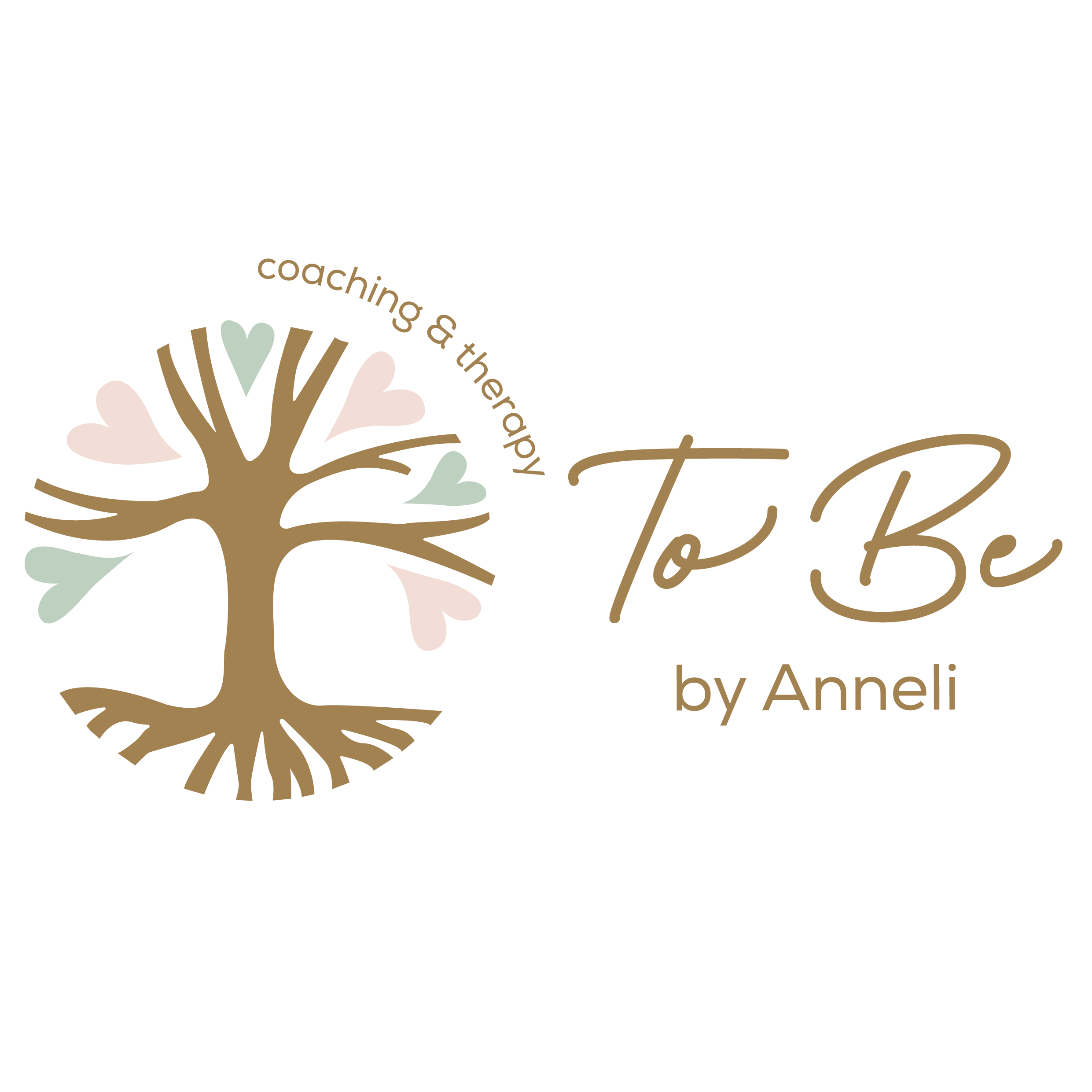Coaching High Sensitivity
Coaching High sensitivity is for highly sensitive children (HSC) or for highly sensitive people (HSP) who experience this beautiful property as a burden.
Do you feel that your child is hypersensitive, or are you stressed at the end of a day?
Does your child…
- have tantrums or sleeps badly? Is your child easily over-stimulated?
- suffers from itchy labels or incorrectly fitting pants or socks?
- have difficulties with change or new situations?
- have many fears? Is your child caring for others or does your child worry a lot?
- have little self-confidence or fear for failure?
- have frequent headaches or abdominal pains? And does your child not want to go to school?
And/or are you …
- someone who is always there for everyone, forgetting oneself, is a listener to everyone and puts others first?
- a perfectionist, to do everything absolutely right and can adapt quickly?
- judgemental to yourself, caring for others, insecure about your performance and do you worry a lot?
- someone who has trouble setting boundaries? Do others overwhelm you? Do you have great empathy?
And/or are you a teacher and do you see …
- a student in your class who is shouting, angry or has a short fuse?
- a student who is shy or cautious, self-critical, insecure or fearful of failure?
- a student who is easily distracted or notices so much that his attention is everywhere except at himself?
- a student who is underperforming?
- a student who has difficulty with changes or transitions?
Do you want...
... more peace and relaxation?
...more self-confidence?
...to understand where certain behaviour comes from?
... concrete tools for the challenges of high sensitivity?
... experience high sensitivity as quality?
Coaching High Sensitivity offers…
Guidance of Highly Sensitive Children (HSC)
Raising a highly sensitive child is sometimes quite a challenge. They have their own ‘manual’ and certain things do not come naturally. This requires a lot of patience, understanding and creativity from parents and counselors. Sometimes it is nice to get some extra support.
Anneli can guide you in these challenges. She gives you and your child insight into themselves, builds on self-confidence, guides in dealing with emotions, teaches your child to understand themselves and teaches you to understand your child. Anneli teaches your child to feel and indicate boundaries and to discover his or her talents and qualities and to work from here.
Request a no-obligation introductory meeting for more information.
Do you want to know if your child is highly sensitive?
Guidance of Highly Sensitive Persons (HSP)
Discovering the High Sensitivity characteristics can provide a lot of clarity. Finally you know to adapt to the expectations of others, take everyone into account or continuously push your boundaries.
Anneli can guide you in this topic. You gain more insight into yourself, information about what high sensitivity entails and you (re)discover what your qualities and your pitfalls are. You learn to feel your limits and to indicate these limits and you will work together on more balance and self-confidence. You discuss together exactly what you want to work on and you also get concrete tools for the challenges of high sensitivity.
Request an introductory meeting with no-obligation for more information.
Do you want to know if you are highly sensitive?
Guidance of Families & High Sensitivity
Raising a highly sensitive child is quite a challenge. Let’s not speak when you (or one of you) are highly sensitive yourself. In some cases you feel others so well that you subconsciously fills in a lot. This has a major impact on family dynamics.
Anneli can guide you in this. You will gain more insight into yourself and each other, more information about high sensitivity, you (re) discover your own qualities, but also those of your (possible) partner and child (ren). You learn to set and respect boundaries and to understand each other better.
Even if one of the parents or children is not highly sensitive, you can contact Anneli. Mutual understanding, insight into each other is then extra important.
Request an introductory meeting with no obligation for more information.
Guidance of Teachers & High Sensitivity in the classroom
1 out of 5 children in the classroom are highly sensitive. This requires a lot of patience, understanding and creativity from you as a teacher. Interpreting behaviour and guiding a child is easier if you understand where this behaviour comes from.
Anneli can guide you in this. You will gain insight into what high sensitivity is, information about different expressions in behaviour and how to recognise under-stimulation and over-stimulation. You will receive practical tools to use in the classroom to learn to look behind children’s behaviour.
Anneli can give lectures on study days to inform teams and provide insight into what high sensitivity means.
Even if you as a teacher are highly sensitive yourself in a class of 20% highly sensitive children, Anneli can offer the right guidance, which is in line with your needs.
For more information, request an introductory meeting without obligation or go to Services for more information about Lectures.
Anneli offers the guidance you need

My Method
Guidance Highly Sensitive Children (HSC)
Make an appointment without obligation for an introductory meeting to discuss your child’s request for help. I can tell you which help will be sufficient for you and your child and whether coaching can be appropriate. If so, I will send you the intake form.
Based on the intake form, I make a plan, focused on your child’s request for help. During the intake interview, we discuss the plan and adjust it so that it matches exactly what your child needs.
The sessions always look the same in terms of structure. We start by discussing emotion cards, followed by reading a story. Then we get to work creatively and actively. A session lasts about an hour and parents can (do not have to) always stay with it. After each session, your child will receive the story, with exercises and concrete tools to practice everything together.
In consultation we plan moments for an interim evaluation, meeting with the teacher or for a final interview.
Guidance for Highly Sensitive Persons (HSP)
Make an appointment without obligation for an introductory meeting to discuss your request for help. Then I can tell you what I can do for you and whether coaching can be appropriate. If so, I will send you the intake form.
Based on the intake form, we make a plan together, focused on your request for help. During the intake interview, we discuss the plan, your challenges and what the desired situation is. After each session we make an appointment for the next time.
When you have the confidence to continue on your own or when the coaching turns out not to be appropriate, then we complete the coaching.
Guidance of Families & High Sensitivity
Make an appointment without obligation for an introductory meeting to discuss your request for help. Then I can tell you what I can do for you and whether coaching can be appropriate. If so, I will send you the intake form.
Based on the intake form, we make a plan together, focused on your request for help. During the intake interview we discuss the challenges and what the desired situation is. After each session we make an appointment for the next time.
When you have the confidence to continue on your own or when the coaching turns out not to be appropriate, we will complete the coaching.
Guidance of Teachers & Schools
Make an appointment without obligation for an introductory meeting to discuss your request for help. Then I can tell you what I can do for you and whether coaching can be appropriate. If so, an intake interview will follow.
During the intake interview we discuss your challenges and what the desired situation is. In consultation I can come and observe in the classroom. After each session we make an appointment for the next time.
In consultation I can give a lecture to the team or to parents.
When you have the confidence to continue on your own or when the coaching turns out not to be appropriate, then we complete the coaching.
Frequently asked questions about high sensitivity
Is high sensitivity the same as over sensitivity?
Yes, we think so in the Netherlands. Elaine Aron introduced the concept of Highly Sensitive Person in 1996. In the Netherlands, both terms high sensitivity and over sensitivity stand for the same thing, namely: the ability to perceive subtle information, experience it intensely and process it in depth. The Belgian Elke van Hoof, however, splits the terms high sensitivity and over sensitivity. Elke uses the term over sensitivity to the (over) emotional response that can occur with HSP and Non-HSP as a result of intense emotions. In the Netherlands, we fully agree with Elke that this (over) emotional reaction can occur in anyone as a result of intense emotions. Only for this (over) emotional response, we use the term hypersensitive and not the term highly sensitive. In the Netherlands, the word ‘high’ unambiguously stands for ‘to a high degree’ and not ‘too’ or ‘over’.
Is high sensitivity a fad?
No, this character trait always existed. Elaine Aron gave it the name highly sensitive in 1996. Fortunately, more and more people are becoming familiar with the term high sensitivity (HSP). It is therefore a lot easier to discuss than years ago. High sensitivity already occurred in the past and also in animals. Around 1900, Pavlov referred to it in short as ‘physical and mental overstimulation of the nervous system’ and Carl Jung ‘an innate sensitive trait’. Nowadays we have to deal with more incentives, such as social media.
Is high sensitivity a disorder and is there a HSP diagnosis?
High sensitivity is a character trait that one in five people possesses. Although it may bother you, it is not a disorder. HSP is not a diagnosis that can be made and actually no one, not even an HSP coach, can tell you that you are highly sensitive. On the basis of tests, your life story and your experiences, we can look together in a coaching process what you encounter and what could help you to see this character trait as a strength.

Locatie
Currently I only work online or on location – The Netherlands
Make an Appointment
Face – to – face
Online
Workdays
Monday – Friday: 09.00 – 15.30
On Saturdays or in the evenings in consultation
